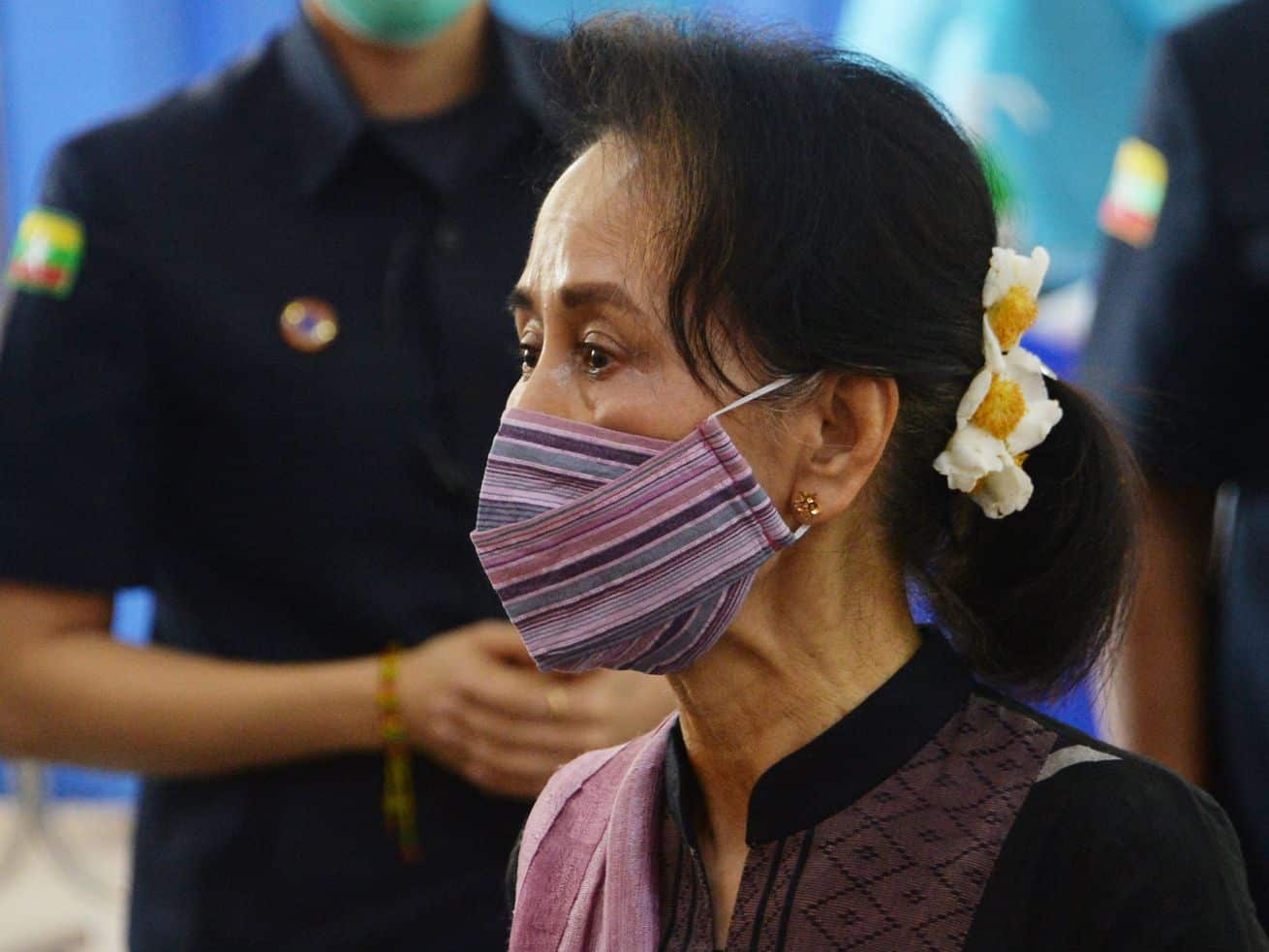After Monday’s coup, the de facto civilian leader is accused of having illegal walkie talkies.
Early Monday, Myanmar’s military took control of the government, arresting the de facto civilian leader Aung San Suu Kyi and her political allies in what the Biden administration has called a “coup.”
Now the military has announced formal charges against Suu Kyi. Her crime? Being in possession of illegally imported walkie-talkies. The charge carries a maximum sentence of three years in prison.
If it sounds like an absurd charge, that’s because it is. It’s really just a way for the military to manipulate the law and create a guise to continue detaining Suu Kyi. The ousted leader is currently under house arrest at her home in Naypyidaw, Myanmar’s capital.
Myanmar’s deposed president, Win Myint, who ruled alongside Suu Kyi in her role as state counsellor, also faces charges for violating Covid-19 restrictions. He has been accused of greeting a crowd of supporters at a campaign rally back in November.
The almost comical charges against these leaders are another reminder of how brittle Myanmar’s democracy is.
They come just days after the military conducted a full-scale takeover of the government after making unsubstantiated claims of widespread voter fraud in the country’s November elections.
Suu Kyi and her National League for Democracy (NLD) Party won an overwhelming popular mandate in that election, winning 396 seats in parliament. Neither the country’s Union Election Commission nor international observers found evidence of widespread irregularities that would have changed the outcome of the vote.
But just as the new parliament was set to convene, the Tatmadaw, Myanmar’s military, stepped in. They arrested Suu Skyi and hundreds of members of her party, along with other activists and public figures. The internet was shut down and flights were grounded. The military declared a national emergency for one year and said it would remain in control during that time.
“The military is using the laws as a means to continue to detain both Suu Kyi and Win Myint,” John Quinley, a human rights specialist for Fortify Rights told the Wall Street Journal. “The coup is bringing Myanmar back to the dark days.”
An uncertain future for Myanmar
The Tatmadaw ruled the country for decades, and the country has experienced two previous coups, in 1962 and 1988. The military’s grip on power left the country isolated politically and economically, so the military worked to draft a new constitution adopted in 2008, which carved out some responsibilities for civilian leadership, while the military retained much of the actual power. In 2015, Myanmar’s pro-democracy champion Aung San Suu Kyi and the party she led won a massive victory in the election, and Suu Kyi became the “state counsellor,” a de facto civilian leader, the following year.
Suu Kyi, who spent 15 years under house arrest for her pro-democracy activism, is seen as a mother-like figure by her millions of supporters in the country. Her indifference to the Myanmar military’s atrocities against the Rohingya Muslim minority tarnished her image abroad, but she has enormous support at home.
Suu Kyi’s party has called for nonviolent resistance against the regime, and in cities like Yangon, people banged pots and bans and honked horns in protest against the coup, according to the New York Times.
The Associated Press reported that hospital workers have also declared they will not work for the military regime, with some going on strike and others wearing red ribbons to show their opposition — a protest that may carry even more weight given the Covid-19 crisis.
These small acts of protests were echoed elsewhere, including in places like Bangkok, Thailand.
The rest of the world is closely watching what the military does next — though options for punishing the military and pushing them to back down are somewhat limited. At a United Nations Security Council meeting on Tuesday, Russia and China blocked a statement condemning the takeover.
The foreign minister of the G7, an organization of the world’s biggest economies, denounced the coup in a statement Wednesday. “We call upon the military to immediately end the state of emergency, restore power to the democratically-elected government, to release all those unjustly detained and to respect human rights and the rule of law.”
The Biden administration has formally labeled the Myanmar takeover a coup, and will restrict some aid to the country, excluding funds that support civil society and humanitarian aid. The administration is also reviewing the imposition of economic sanctions on Myanmar, which were removed in 2016 as a reward for its democratization efforts.
This week has shown the hollowness of some of those democratization efforts in a place where something as minor as possessing imported walkie talkies can be used to justify detaining the country’s top civilian leader.
Author: Jen Kirby
Read More



